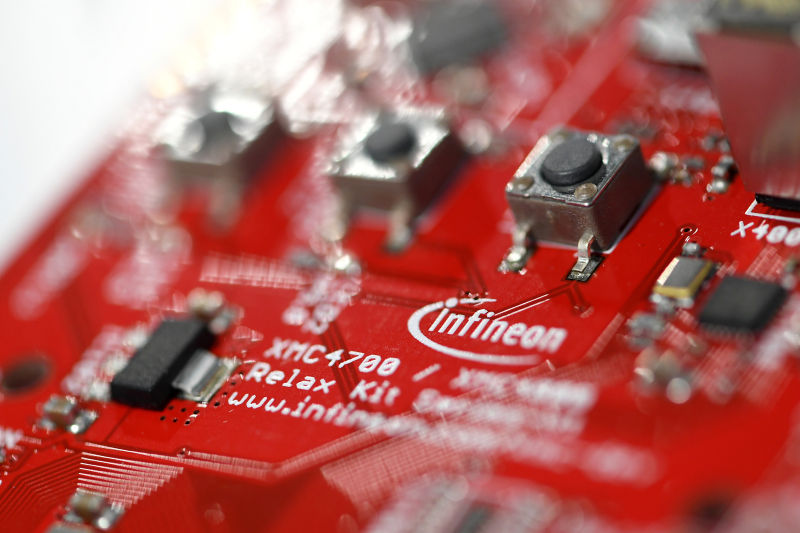The European Union (EU) on Tuesday unveiled a plan to quadruple the supply of semiconductors in Europe by 2030, hoping to limit the bloc’s dependence on Asia for a key component used in electric vehicles (EVs) and smartphones.
The production of chips has become a strategic priority in Europe as well as the US, after the shock of the pandemic choked off supply, bringing factories to a standstill and emptying stores of products.
The manufacturing of semiconductors overwhelmingly takes place in Taiwan, South Korea and China and the EU’s 27 member states want factories and companies inside the bloc to take on a bigger role.
The European Chips Act will “mobilise more than 43 billion euros ($49.1 billion) of public and private investments” and “enable the EU to reach its ambition to double its current market share in 2030”, the European Commission (EC) said.
“We’ve set ourselves the goal to have 20% of the global market share of chips production here in Europe,” EC president Ursula von der Leyen said.
Huge Increase in Demand
Getting to that level “means basically quadrupling our efforts” given the huge increase in global demand, she said.
Thierry Breton, the EU’s industry commissioner, pressed Europeans to be as ambitious as possible and match similar plans in the US, where President Joe Biden’s administration is asking Congress to approve a $52 billion plan.
“Without chips, no digital transition, no green transition, no technological leadership. Securing the supply in the most advanced chips has become an economic and geopolitical priority,” he said.
If approved, the EU plans could generate a total of 43 billion euros via existing EU budget money as well as by loosening existing rules on public subsidy from member states.
Of that, 11 billion euros will be fresh spending to develop state-of-the-art chips, while the remainder is an estimate of current EU projects and what member states individually are harnessing towards creating a new supply of semiconductors.
Approvals Needed
The proposal will need the approval of the EU member states and European Parliament, where opinions will vary between the ambitions of industrial heavyweights such as Germany, France and Italy.
Critics will also point to a part of the plan, pushed by Breton, to set up an emergency mechanism that could control exports of chips, in the case of a sudden shortage.
Some member states, led by the Netherlands and Nordic nations, will also resist any plan to widen the scope for state aid, with the commission planning to make it easier for EU governments to pump money to chip-makers.
“We don’t want to end up in a position with a huge US company getting a bunch of EU money to open a factory in one big member state,” an EU diplomat said.
- AFP, with additional editing by George Russell
READ MORE:
Japan May Tie Up with US, Europe on CBDC Rules
EU Lodges WTO Case Against China Over Lithuania Row
Samsung To Supply Advanced Auto Chips To Volkswagen
























